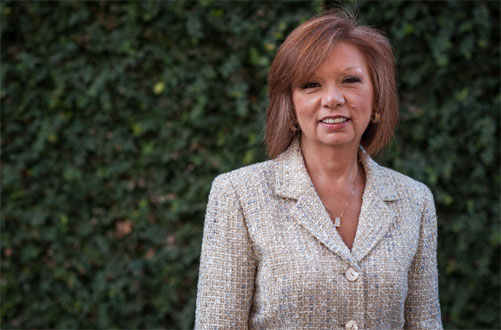
Generic terms cannot function as a trademark, and thus the phrase "generic trademark" is an oxymoron. Trademark law can be a bit confusing on the subject of generic terms. This article defines and clarifies what a generic term is in order to enable trademark owners to avoid the genericness problem in their pursuit of trademark protection.
Trademark terms are categorized into four levels of descriptiveness with regard to their potential for protection: generic marks, descriptive trademarks, suggestive marks, and fanciful or arbitrary marks. Generic terms are common names for products or services and cannot be protected as they do not identify the product's source. At the other extreme, arbitrary or fanciful marks use words or phrases with no direct connection to the product, identifying the source with inherent distinctiveness, and thus automatically qualifying for trademark protection. An example of an arbitrary or fanciful mark is Nintendo for video games. Descriptive terms directly describe a characteristic or quality of the product and can only be protected if they acquire a secondary meaning. An example of a descriptive mark is International Business Machines (IBM) for computers. Suggestive terms imply qualities or characteristics, requiring imagination to connect to the product, and are inherently protectable. An example is Tesla Motors, as Tesla suggests the electric motors of the vehicles.
There is a spectrum of protectability for trademarks, from generic terms to arbitrary or fanciful marks. Generic terms like "apple" for the fruit lack protection because they denote a class of products. In contrast, arbitrary terms like "Apple" for computers are highly protectable due to their distinctiveness and lack of inherent connection to the product.

A generic term is a term that serves as a name of the actual product or service that the seller is offering. It should be understood that “generic” in the context of trademark law has a specific meaning and does not imply that common terms cannot be registered as trademarks. For example, simple, common words like Apple and Guess are routinely registered as trademarks. The critical factor is whether the trademark is descriptive of goods or services offered under the mark to the point that it is a name for the goods or services. “Apple” does not identify consumer electronics, and Guess does not identify clothing. Generic terms are not capable of distinguishing the source of one product from a competitor because they refer to an entire class or genus of products. An example of a generic mark is ‘cycle’ is a generic term for a two-wheeled vehicle, so generally speaking, a bicycle company would not be able to register, e.g., CYCLE CO as a trademark for use on its bicycles. A company seeking to protect its brand should pick a company name and brands that avoid the genericness problem.
A term can be a generic name for one thing but may still be considered a valid trademark for some other product. Apple does not sell the fruit; the company sells computers. Similarly, Shell in no way provides goods or services relating to the covering of an egg, but rather sells gasoline.
Trademarks act to identify and distinguish the goods and services provided by one seller under a particular brand from those of the others. Generic terms, designations that refer to the same product or service they supposedly identify the source of, do not provide this function. Since the name of a product or service offered cannot identify its source, it cannot function as a trademark and cannot be registered with the United States Patent and Trademark Office (USPTO). If this were not the case, one seller could trademark their product or service and preclude the use of the term by competitors offering the same product or service. This would be akin to granting a monopoly on identifying a particular product.
The genericness test turns on the (relevant) public’s perception of the mark in question. The general test asks: what does the relevant consumer understand the word to refer to—the generic name of a product or a mark indicating one source of that product? Two considerations flow from this general question.
This test may seem to render a term generic if buyers often call or order a product using that specific term. For instance, people commonly refer to photocopy machines as ‘Xerox Machines,’ and photocopying as ‘Xeroxing.’ However, it is the use and understanding of the term in the context of purchasing decisions that determines the primary significance of the designation. Unfortunately for the Xerox Corporation it was in jeopardy of losing its trademark registration. It had to fight off the generic usage of "xerox" through an expensive advertising effort to shift the public usage to "photocopying" documents, in order to protect its XEROX registration and associated intellectual property rights.
A simple and helpful way of understanding the basic question of whether a term is generic is to ask the following question: In the minds of the consumers, does the term provide an answer to what the product is (generic), or does it answer where it comes from (source identifier)?
Genericide is a potential pitfall for trademark owners. Genericide describes a situation in which one seller obtains trademark rights for a term which is in turn appropriated by the relevant public to refer to the name of a product. The term may therefore become generic, and the associated exclusive right to use the trademark can be lost.
There are two common causes of genericide. The first is when a new product is developed, and the term intended to be used and registered as a trademark is taken by the public and used in a generic way. Because it is a new product, the buyers have no other word to use. The second is the failure to police the usage by competitors, which can thereby influence its usage among consumers. By observing the term is used among many sellers, the consumers may begin to see the term as generic. If genericide occurs, all trademark protection is lost and the competitors can use the mark without risk of trademark infringement. There are famous examples of genericide resulting in a registered trademark becoming generic, including:
These examples illustrate how certain trademarks have lost their distinctiveness and become generic, often due to widespread consumer use that associates the term with the product category rather than a specific brand.
Once the public begins to identify a trademarked term as the name for the trademark owner's product and perhaps similar products, it is very difficult for the trademark owner to reverse the trend. It is therefore crucial to take precautions because once a trademark becomes a generic term, it provides no legal protection to the business that uses it. Two strategies in particular can help companies maintain their trademark protection and defend against genericide:

"Mark and William are stellar in the capabilities, work ethic, character, knowledge, responsiveness, and quality of work. Hubby and I are incredibly grateful for them as they've done a phenomenal job working tirelessly over a time span of at least five years on a series of patents for hubby. Grateful that Fresno has such amazing patent attorneys! They're second to none and they never disappoint. Thank you, Mark, William, and your entire team!!"
Linda Guzman

Sierra IP Law, PC - Patents, Trademarks & Copyrights
FRESNO
7030 N. Fruit Ave.
Suite 110
Fresno, CA 93711
(559) 436-3800 | phone
BAKERSFIELD
1925 G. Street
Bakersfield, CA 93301
(661) 200-7724 | phone
SAN LUIS OBISPO
956 Walnut Street, 2nd Floor
San Luis Obispo, CA 93401
(805) 275-0943 | phone
SACRAMENTO
180 Promenade Circle, Suite 300
Sacramento, CA 95834
(916) 209-8525 | phone
MODESTO
1300 10th St., Suite F.
Modesto, CA 95345
(209) 286-0069 | phone
SANTA BARBARA
414 Olive Street
Santa Barbara, CA 93101
(805) 275-0943 | phone
SAN MATEO
1650 Borel Place, Suite 216
San Mateo, CA, CA 94402
(650) 398-1644. | phone
STOCKTON
110 N. San Joaquin St., 2nd Floor
Stockton, CA 95202
(209) 286-0069 | phone
PORTLAND
425 NW 10th Ave., Suite 200
Portland, OR 97209
(503) 343-9983 | phone
TACOMA
1201 Pacific Avenue, Suite 600
Tacoma, WA 98402
(253) 345-1545 | phone
KENNEWICK
1030 N Center Pkwy Suite N196
Kennewick, WA 99336
(509) 255-3442 | phone
2023 Sierra IP Law, PC - Patents, Trademarks & Copyrights - All Rights Reserved - Sitemap Privacy Lawyer Fresno, CA - Trademark Lawyer Modesto CA - Patent Lawyer Bakersfield, CA - Trademark Lawyer Bakersfield, CA - Patent Lawyer San Luis Obispo, CA - Trademark Lawyer San Luis Obispo, CA - Trademark Infringement Lawyer Tacoma WA - Internet Lawyer Bakersfield, CA - Trademark Lawyer Sacramento, CA - Patent Lawyer Sacramento, CA - Trademark Infringement Lawyer Sacrament CA - Patent Lawyer Tacoma WA - Intellectual Property Lawyer Tacoma WA - Trademark lawyer Tacoma WA - Portland Patent Attorney - Santa Barbara Patent Attorney - Santa Barbara Trademark Attorney